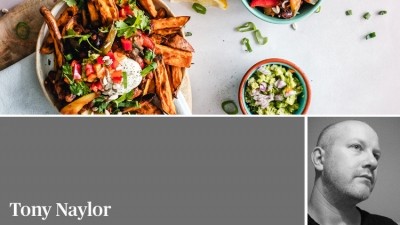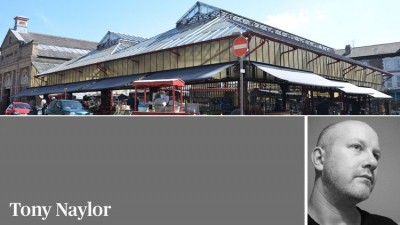Playing the regeneration game

It is difficult to overstate how quickly the UK high street is changing. According to a recent study for PricewaterhouseCoopers, 2,481 chain stores closed on our top 500 shopping streets last year; up 40% on 2017. One-time anchor tenants are either defunct (BHS, Toys R Us) or, from M&S to Debenhams, shutting stores. When profits are down 56% at John Lewis and Topshop-owner Arcadia has proposed a CVA, the shit hasn’t so much hit the fan as clogged it so thoroughly its jammed, whining motor is smouldering dangerously.
This new reality is transforming towns as cinemas, gyms, bowling alleys and experiential leisure venues (crazy golf etc), are deployed to bolster footfall. With shopping no longer a lure, all the talk is of ‘curating’ lifestyle hubs, with F&B key to such ‘placemaking’.
That concept is not new. But following the casual dining crash, the shift in emphasis from national brands to indie operators is. Where once good covenant strength was essential to secure a long lease on a hot address, now landlord-developers and interventionist councils (which are trying to revive historic markets they manage, or buying-up and letting empty buildings), are courting small businesses which are perceived to add value to a locality.
This will present exciting opportunities. But it is also alarming, given how councils and developers generally lack an understanding of their local food scene or the conditions in which such businesses might flourish. For instance, in areas where food hubs have been used to fertilise wider regeneration, over-saturation frequently follows. Without comprehensive planning control, landlords adjacent to any hip bar-restaurant enclave will, naturally, try to cash-in on that audience, often diluting the original scheme.
Too often, councils want to have their cake and eat it, too. They want the economic and PR boost of a hip, buzzing food quarter but won’t do anything controversial (pedestrianisation, late and outdoor licences) or costly (extra street cleaning), that would help it grow organically and unpredictably. Ideally, councils would provide cheap space for energetic young businesses and leave them to it. Instead, particularly near residential properties, councils prefer quiet, contained, indoor-only restaurants that are closed by midnight. That is not a neighbourhood, and casual restaurants rarely flourish in that vacuum. They need be embedded in genuinely exciting destinations, surrounded by late bars, clubs and vibrant open-air spaces.
It is also questionable how capable developers, landlords and councils are in judging and prioritising that crucial intangible, quality. Take food halls which, after the success of Altrincham’s Market House, are now seen as a must-have motor of regeneration, with scores in development nationally.
The best (see also, Sheffield’s Kommune), are ambitious, singular and exacting in collating outstanding kitchens. But as one source told me, that is rare: “There are a lot of cynical developers who see [Altrincham’s success] and want to create a cheap copy to generate short-term profit. The other camp is more naive. They think they can bring any chefs in, that it’s just the format people go for – then bring in mediocre traders in too high quantities. Both camps will fail to deliver a quality offering or a benefit to the community.”
In that way, this golden goose could be strangled at birth. Indie F&B can help rejuvenate failing towns but that delicate ecosystem needs cultivating with rare skill. There are no instant wins. No transferable solutions. Each development must find its own convincing, distinctive rationale, and operators must be wary of landlords that see cool new F&B businesses as a quick, fashionable fix.
This is a web version of an article that first appeared in the June issue of Restaurant magazine, the leading title for the UK's restaurant industry. For more features, comment, interviews and in-depth analysis of the restaurant sector subscribe to Restaurant magazine here.
Follow Tony on Twitter: @naylor_tony

















